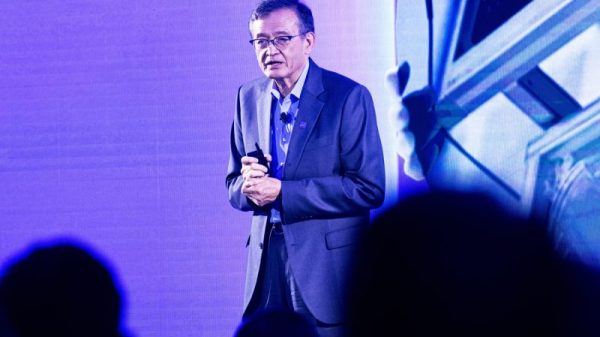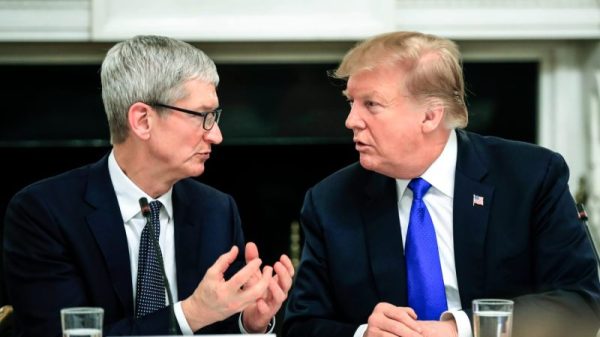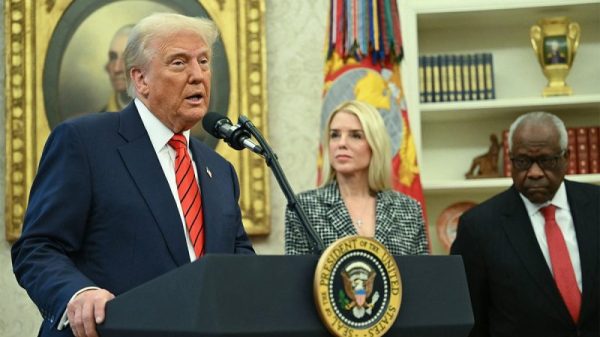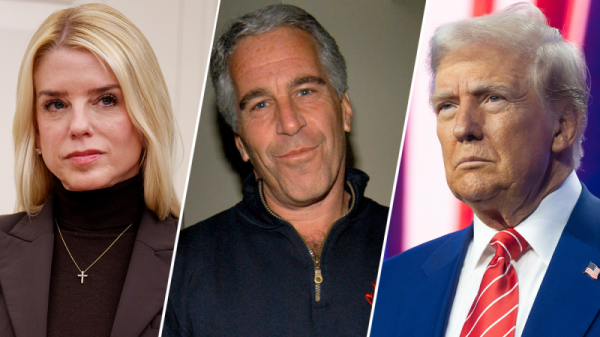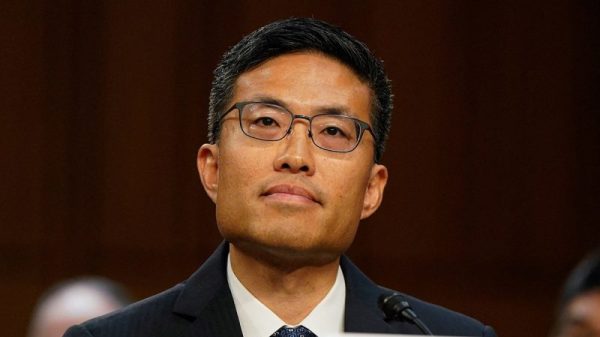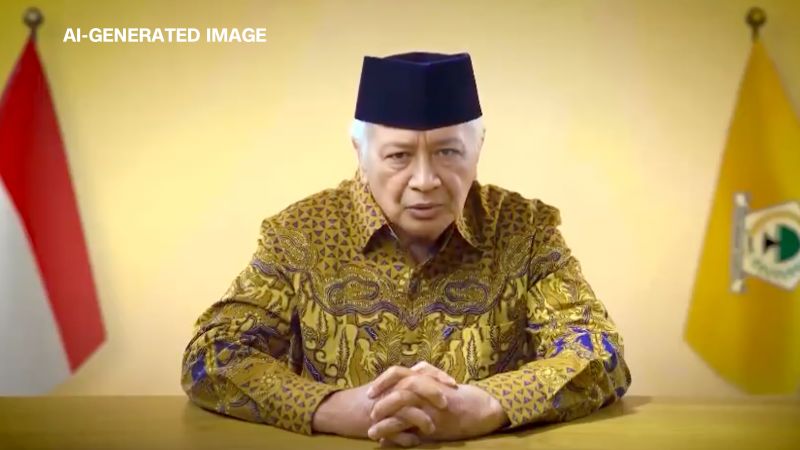A once-feared army general, who ruled Indonesia with an iron fist for more than three decades, has a message for voters ahead of upcoming elections – from beyond the grave.
“I am Suharto, the second president of Indonesia,” the former general says in a three-minute video that has racked up more than 4.7 million views on X and spread to TikTok, Facebook and YouTube.
While mildly convincing at first, it’s clear that the stern-looking man in the video isn’t the former Indonesian president. The real Suharto, dubbed the “Smiling General” because he was always seen smiling despite his ruthless leadership style, died in 2008 at age 86.
The video was an AI-generated deepfake, created using tools that cloned Suharto’s face and voice. “The video was made to remind us how important our votes are in the upcoming election,” said Erwin Aksa, deputy chairman of Golkar – one of Indonesia’s largest and oldest political parties. He first shared the video on X ahead of February 14 elections.
The party is one of 18 competing in this year’s race, which will see more than 200 million voters head to the polls. Golkar is not fielding its own presidential candidate but has thrown its support behind frontrunner Prabowo Subianto, a former army general under Suharto’s military-backed regime – and also his former son-in-law.
By bringing a long dead leader back to life just weeks before the vote, Golkar’s intentions were clear: to encourage voters to throw their weight behind the party synonymous with Suharto.
“As a member of Golkar, I am very proud of Suharto because he successfully developed Indonesia,” Aksa wrote on X. “He brought a lot of success. We must respect it and remember his services – Golkar was there.”
But online critics decried the act of using a dead man’s face and voice, especially for political propaganda. “This is the state of our country today – bringing dead dictators back to life to fool and scare us into votes,” wrote one Indonesian on X.
“Since when did it become ethical to create deepfakes out of dead people? It feels so morally wrong,” said another.
Voting in the era of deepfakes
The online world plays a huge role in Indonesian politics. In a country with one of the world’s highest internet usage rates, almost all political parties and politicians maintain strong presences on social media to amass followers and clout.
“Deepfakes can greatly influence an election – the way campaigning is done, as well as the results,” said Golda Benjamin, Asia Pacific campaign manager at Access Now, a US digital rights non-profit.
“The danger lies in how fast it spreads. A deepfake can easily reach millions in seconds, swaying and manipulating (millions of) voters.”
The Golkar-produced Suharto video was just one of dozens featured in official party campaigns, they said.
Following public criticism, the campaign team of three-time presidential hopeful Prabowo Subianto, also Indonesia’s current defense minister, admitted to using AI software to give their chief a cuddly animated makeover on TikTok to appeal to young voters. Indonesians aged 40 and younger – who number around 114 million voters – make up the majority of votes.
In another video that attracted intense criticism, AI-generated children were used by the party in a TV commercial to skirt rules banning children from appearing in political campaigns.
“The technology used is so advanced … We can understand if some people mistook (the children) as real characters,” Budisatrio Djiwandono, Prabowo’s nephew and spokesperson for his nationalist right-wing Gerindra Party, said in a statement after the advertisement was called out by watchdog groups.
The third presidential candidate, former Jakarta Gov. Anies Baswedan, whose campaign makes use of an OpenAI-powered chatbot that answers questions about his policies on WhatsApp, has cautioned against the use of AI in the election after he became the victim of an audio deepfake in January. A doctored conversation of Anies, purportedly being chastised by a political backer, made rounds online.
“We have to be critical because now there is AI technology which can generate audio or visuals that can appear real,” Anies told a campaign rally later that month.
TAPP (Tim Advokasi Peduli Pemilu), a Jakarta-based nonprofit, said that videos like the Suharto deepfake showed AI’s potential for voter manipulation.
“The government is still not aware of the dangers of deepfakes,” said spokesperson Gugum Ridho Putra.
“We know what AI is capable of and this is only the beginning,” he adds. “We are concerned about voters being manipulated, especially so close to the election.”
The ‘ghost’ of Suharto
Suharto’s 32-year dictatorship is considered by international rights organizations to be one of the most corrupt and brutal periods in Indonesia’s history.
Thousands were jailed or killed during his rule as he cracked down on critics and political opponents, and enforced his regime’s rule over East Timor, Aceh, West Papua and the Maluku islands.
Discussion of his rule remains largely taboo in Indonesia and opinions about his legacy are mixed.
But in places like Kemusuk, a village near Yogyakarta where he was born, his image is everywhere – from museum memorabilia celebrating his life to the souvenir T-shirts with his smiling face. Now he has found renewed fame online.
“The video’s virality speaks to his legacy and shows how relevant he is in Indonesia today,” said Soe Tjen Marching, an Indonesian author-composer and academic at SOAS University of London. “He has been dead for many years but still has many supporters,” she added. “His ghost still lingers.”
But for those like retired officer Anton Pratama, 55, who grew up during the Suharto years, the dictator’s reappearance “was disarming.”








